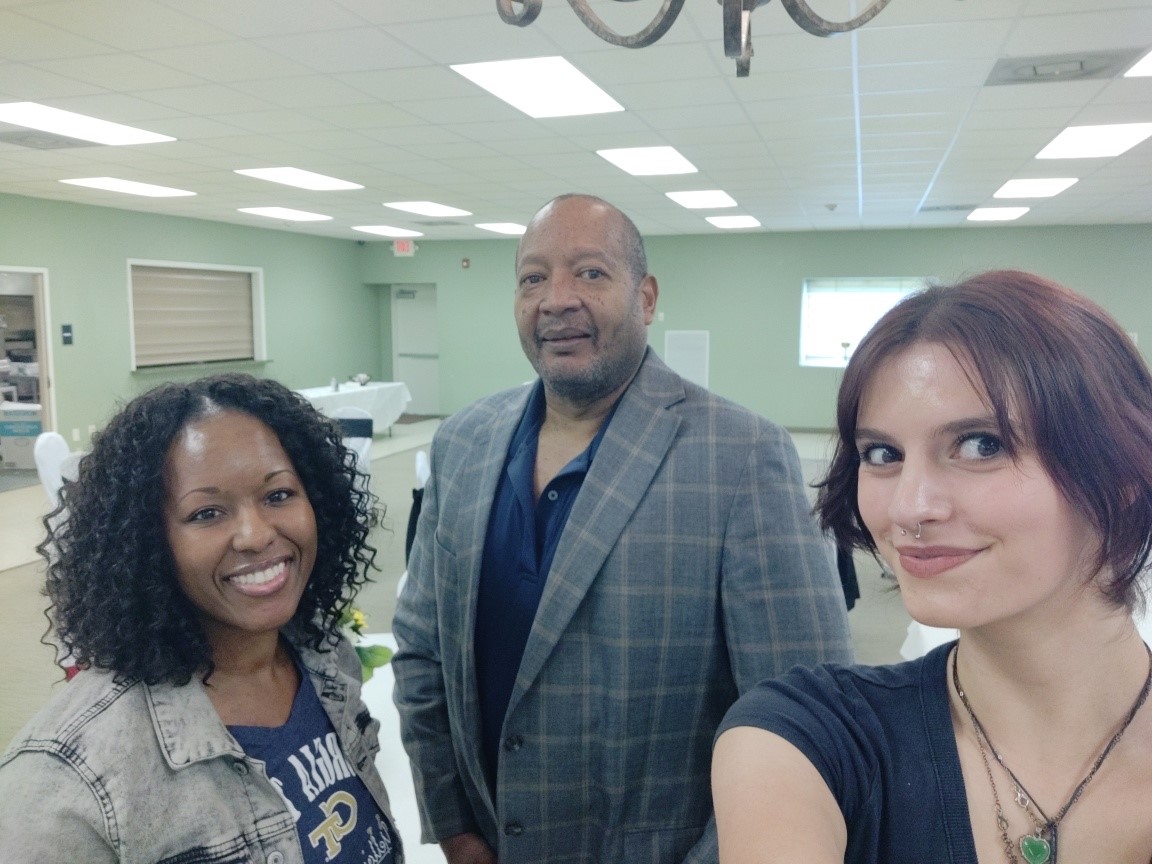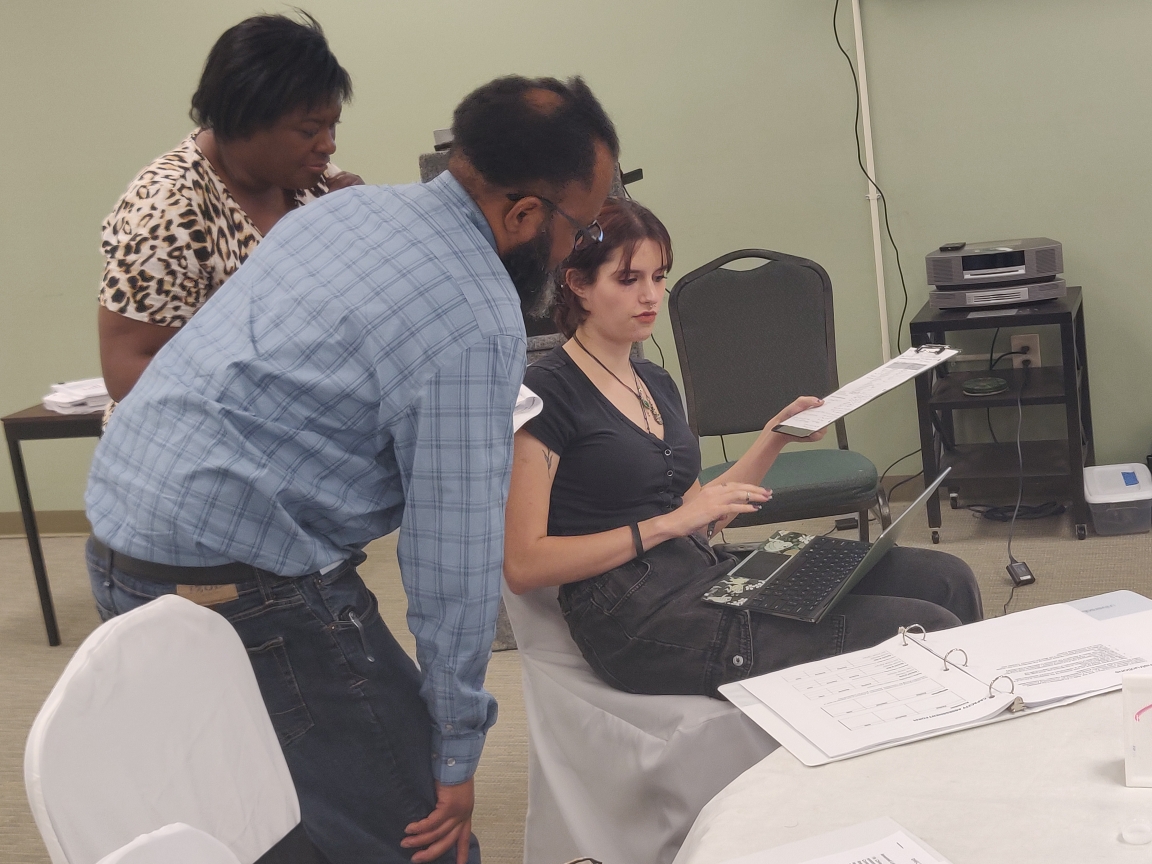The Center for Sustainable Communities (CSC) continues to introduce Georgia Tech students to pressing environmental justice issues burdening the southeast with its fourth Excursion into Justice. This Excursion into Justice was done in conjunction with the EJ Strong Community Managed Risk Reduction Project, led and coordinated by South Carolina's Department of Health and Environmental Control team. Driven to support local low-income and minority groups, academic institutions along with state agencies and community leaders come together to amplify the community’s past and present voices concerning disaster risk reduction. Ultimately, the work completed during the excursion will serve as the basis for an action plan, accurately and justly outlining what needs to be done to prevent and mitigate these disasters.
 The latest excursion took place in Lower Richland County, SC, with representatives from Georgia Tech including the CSC President Garry Harris, environmental engineering undergrad Jennie Baker, and materials science engineering alumni Lauren Johnson. Day one consisted of a comprehensive bus tour through the county, where residents of the community guided the group through significant sites, features, environmental and climate challenges, social justice issues and historical values, complete with fondly added anecdotes of their personal experiences growing up in Lower Richland. This concluded with a visit to the Congaree National Park, a beautiful site of nature preservation where research and citizen science Initiatives were discussed along with their largest tourist attraction: synchronous fireflies.
The latest excursion took place in Lower Richland County, SC, with representatives from Georgia Tech including the CSC President Garry Harris, environmental engineering undergrad Jennie Baker, and materials science engineering alumni Lauren Johnson. Day one consisted of a comprehensive bus tour through the county, where residents of the community guided the group through significant sites, features, environmental and climate challenges, social justice issues and historical values, complete with fondly added anecdotes of their personal experiences growing up in Lower Richland. This concluded with a visit to the Congaree National Park, a beautiful site of nature preservation where research and citizen science Initiatives were discussed along with their largest tourist attraction: synchronous fireflies.
Following the tour, everyone gathered on the second day to discuss and assess the environmental issues that would be the focus of our disaster risk reduction plan. After a brief training on how to approach this analysis, three significant environmental risks were identified: wildfires, flooding, and toxic releases.
Divided into groups for each risk, members of EJ Strong facilitated the process of completing hazard, vulnerability, and capacity assessments. These forms greatly support the creation of the action plan as they were the product of methodical data collection and analysis between Lower Richland residents, university students and faculty, and state and local experts. Most importantly, the relationships strengthened throughout this trip will function to further foster collaboration between all groups, empowering individuals to successfully help implement this plan in the coming months.
The Center for Sustainable Communities continually engages in this exercise as part of its "Building a Weather-Ready Nation" initiative and plans to continue to support EJ Strong Projects through more than just field engagement. CSC is currently working with Georgia Tech's College of Computing to help automate the EJ Strong data collection process and hopes to involve more and more Georgia Tech students and faculty in this unique and enlightening community engagement experience.
